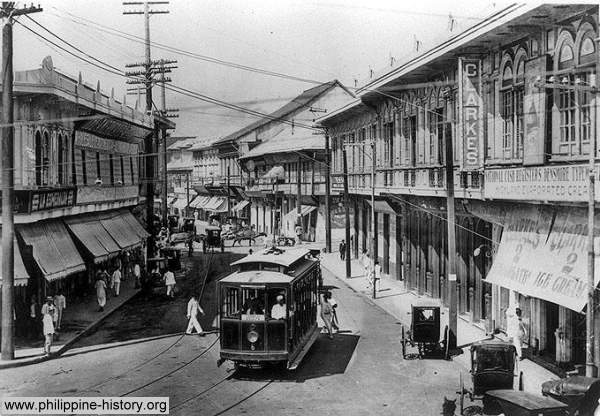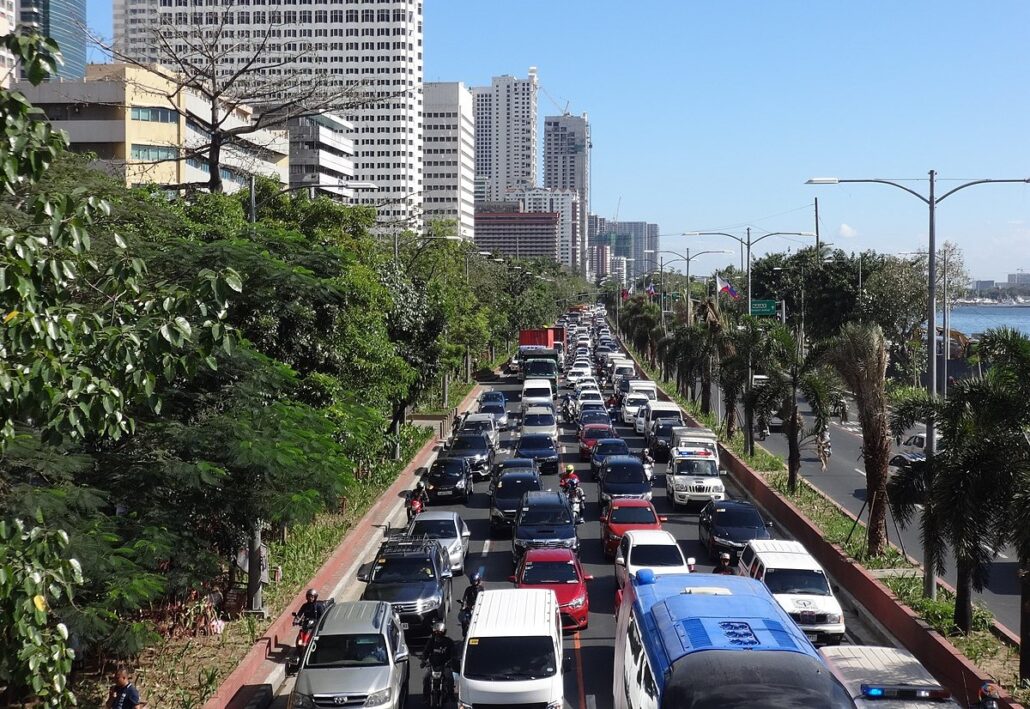
Measuring Active Mobility: How to fill the gaps in data and quality assessments?
October 8, 2024
Author: Heba Mousa – Reviewed by: Tu My Tran
The Quezon and Pasig Cities in the Philippines are part of the larger dense urban agglomeration of Metro Manilla that consists of 16 cities and one municipality. Once a compact harbour city with well-connected tramways and walkways, Metro Manila fell into a motorization spiral in the post-war rebuilding efforts in the 1950s. A planning paradigm familiar to many cities across the globe. Overpasses and highways connecting central business districts, gated communities and fringes of sprawling cities have greatly shaped the mobility behaviour of the population.


Manila Tranvia and old city center


Traffic in Manila by: Patrickroque01
However, as the roads get saturated with traffic, the cost of congestion is adding an economic burden. If this scenario continues, congestion in Metro Manila will cost the economy 6 billion PHP (94.8 Million Euros) a day by 2030. The national government and local government units (LGUs), therefore, adopted a paradigm shift to rethink urban mobility and traffic demand management. The National Economic Development Authority (NEDA) issued the National Transport Policy in 2017 which prioritizes the revitalization of public transport. Most recently, the Department of Transportation (DoTr) started working on the Active Transport Strategic Masterplan (ATSMP) for the whole country as part of a wider active transport program.
On the local level, local policies like Quezon’s Enhanced Local Climate Change Action Plan (ELCCAP) and Pasig’s Green City Program supported the development of active mobility infrastructure. Currently, Quezon City has 94 Km of cycling lanes and Pasig City developed 35 Km, according to the Philippines’ active mobility dashboard. Each kilometre of cycling lanes can save the economy 26.7 million PHP per year (426.7 Million Euros per year). Community participation here is crucial for the development of comprehensive change on the local level and travel behaviour. Participatory approaches like tactical urbanism open a potential for small-scale actions to multiply into a large-scale impact.
Tactical urbanism for active mobility
The SPARK project promotes active mobility actions through tactical urbanism and open data approaches. In Quezon City, the project launched a tactical urbanism intervention in Maginhawa Street, an active community hub and a local food and arts hotspot that faces challenges of mobility conflicts. A stretch of Maginhawa Street was transformed temporarily at the end of 2024 into a walkable, cyclable and social space. After many rounds of community conversations and envisioning workshops, an experimental reduction of vehicular traffic was implemented, leading to the creation of a protected bike lane and a widened pedestrian zone. More than 140 volunteers participated in this action bringing community ownership to the space. The transformed stretch of the street witnessed many community events like bike training, yoga, dance-fitness, and mapping love stories of Maginhawa on Valentine’s Day.
In Pasig City, a colourful outdoor park was painted in the historical Plaza Familia and accessibility interventions for walking, cycling and wheelchair users were implemented in the A. Mabini street. Visitors of the Pasig old town, the Immaculate Conception Cathedral of Pasig, or the many museums and cultural centres in the area can now experience the city without the limitation of watching from the car. The small, temporary interventions act as a testing ground to guide the city engineers and planners to envision other mobility options, outside the motorized norm. This experience is now being studied by local mobility experts to assess long-term actions and policies for active mobility in the area.
Photos by ICSC and Fredz Decena
The SPARK project: Sparking active mobility actions for climate-friendly cities (2022-2025) is initiated by ICLEI – Local governments for sustainability in cooperation with the Institute for Climate and Sustainable Cities (ICSC). The project is supported by the German Federal Ministry of Economic Affairs and Climate Action (BMWK) and the Federal Ministry of Environment, Nature Conservation and Nuclear Safety (BMUV) through their International Climate Initiative (IKI).


